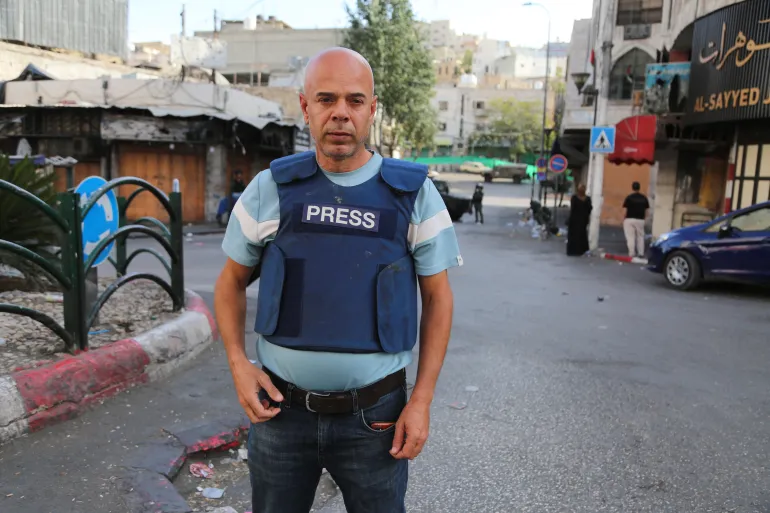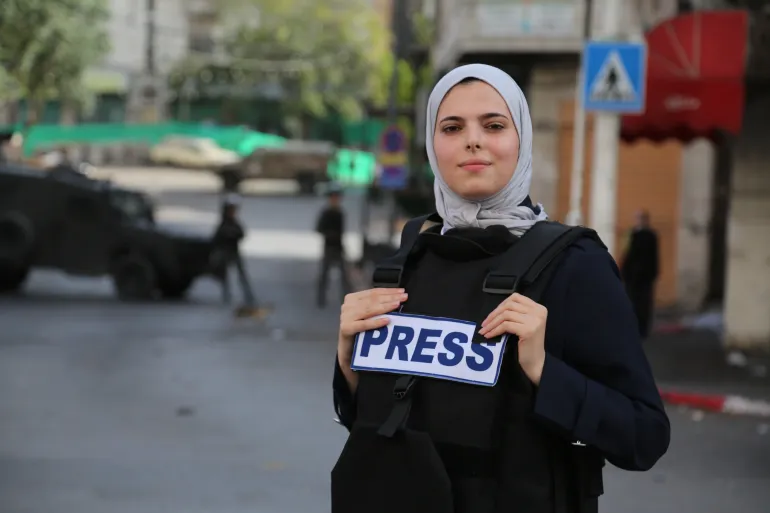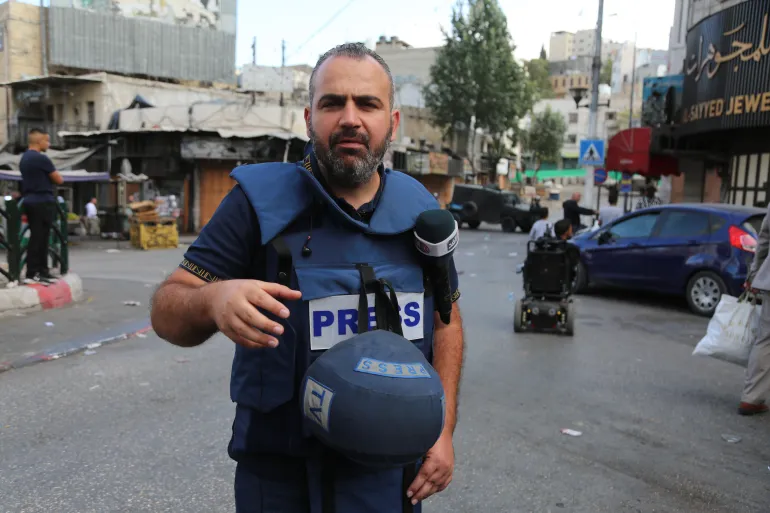Hebron, occupied West Bank – Among the more than 67,190 Palestinians killed in Israel’s war on Gaza, there has been a particularly heavy toll on journalists and media workers. More than 184 journalists have been killed by Israel in the war, including 10 Al Jazeera staff members, according to the Committee to Protect Journalists.
Palestinian journalists in the occupied West Bank were only able to look on at their colleagues’ sacrifice in Gaza from afar. But they have also faced their own challenges, as Israel continues its near-daily practice of raids throughout the Palestinian territory.
Recommended Stories
list of 3 itemsend of list
As Palestinians in Gaza expressed relief at the news of the ceasefire deal, journalists in Hebron, in the southern West Bank, were documenting how Palestinians were being restricted from moving around large parts of the city because of the influx of Jewish Israelis as a result of the Jewish holiday of Sukkot.
Among the areas where Palestinians’ movement has been restricted is the Ibrahimi Mosque, also known as the Cave of the Patriarchs, in central Hebron.
As the journalists navigated the Israeli road closures, they sent their own messages to their colleagues in Gaza – who were forced to endure two years of war marked by displacement, hunger, and loss.

Mamoun Wazwaz, photojournalist
“A thousand blessings to all of you – those who work with the international agencies, TV channels, websites, radio stations, and in the field. You gave everything and sacrificed immensely. I pray that your suffering ends after two years of hell, and that you never live through another war. Your message was the most sacred and powerful in history. You shook the world – because you conveyed the truth. No one could have done what you did.
“The psychological and emotional impact of those who died will never fade. [I remember when Al Jazeera Gaza bureau chief] Wael Dahdouh stood over his son’s body and said, ‘They took revenge on us through our children,’ – I felt those words cut deep into my heart. I saw the footage on television and broke down crying. Imagine how his colleagues, who live it with him, must have felt.
“We live here in Hebron in constant contact with the Israeli occupation forces – there are frequent incursions and military checkpoints. After the war began, following October 7, 2023, the confrontations and clashes were intense.
“They treated us as part of the war, not as neutral observers, and used every possible means to fight us. Many times, I would say goodbye to my family as if it were the last time.”

“You journalists in Gaza sacrificed your lives for your people and homeland. You risked everything to convey the truth, the suffering, and the crimes against Gaza’s people. Whenever one of you is killed, I feel as it I’ve lost someone myself – as if I were the one wounded or arrested.
“You carried the message until your last breath, and you never stopped. You inspire us to continue the path you and the generations before you began. Thank you for every photo, every shot, every moment you captured for the world to see the many, many faces of war.
“War meant displacement. War meant famine. War meant being targeted by the military. War meant stopping education. Through your work, you made the world see it all.”

Raed al-Sharif, journalist
“My feelings are conflicted today after the ceasefire was announced. We in the West Bank followed everything happening in Gaza, where hundreds of journalists were killed or wounded, some losing limbs. What happened was a real crime, a genocide. Journalists [were especially targeted] because the occupation doesn’t want reports to come out of Gaza.
“Honestly, I feel ashamed as a Palestinian journalist. Despite our sacrifices in the West Bank, they don’t amount to even a drop in the sea of what our colleagues in Gaza experienced. They offered their lives and bodies – the most precious sacrifice of all.
“It’s our duty as Palestinian journalists to carry the voice of our oppressed people and continue the journey. The ones who affected me most are our martyred colleagues – like the al-Ghad cameraman Yazan al-Zuweidi, and Al Jazeera’s Anas al-Sharif and Mohammed Qreiqeh. As for Nidal al-Wahidi, he’s been missing since October 7 [2023] – we don’t know if he’s detained, martyred or wounded. That absence hurts deeply – he vanished from existence.